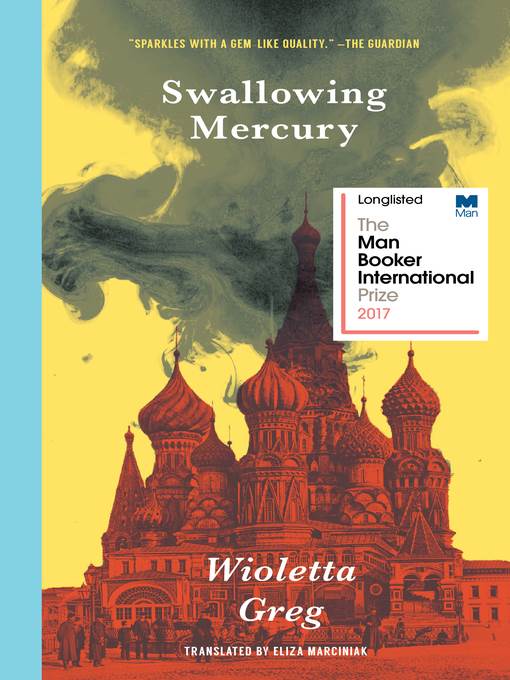
Swallowing Mercury
کتاب های مرتبط
- اطلاعات
- نقد و بررسی
- دیدگاه کاربران
نقد و بررسی

July 10, 2017
In this excellent debut novel, Greg combines a series of vignettes into a coming-of-age story about persistence through hardship. The book follows a young girl, Wiola, as she matures into a woman during the late 1980s, the final years of the Polish People’s Republic. The narrative is centered in the fictional village of Hektary, a struggling rural community. Wiola narrates her experiences: reuniting with her absent father, accepting the death of her first pet, being sexually assaulted, and, eventually, defining herself. Each chapter is contained and strong enough to stand as its own piece of short fiction. Recurring images of flies reinforce the book’s theme of degradation, particularly the decay of innocence and youth. The concise sentences and stark language mirror the scarcity of daily life during the collapse of the Soviet Bloc. The protagonist’s recollections also delve into collisions between religious and political ideology, exemplifying the conflict between self and society. Marciniak’s deft translation amplifies the engrossing sensory details of Greg’s heartbreaking and enlivening novel.

Starred review from July 1, 2017
An autobiographical novel about a young girl growing up in a small Polish village.Greg (Finite Formulae and Theories of Chance, 2014, etc.) has published several volumes of poetry and been translated into at least five different languages. Her first book of prose, an autobiographical novel (or a fictionalized memoir), was received to great acclaim in the U.K. and was longlisted for the 2017 Man Booker International Prize. The book's appearance in the U.S. is a great gift. The novel describes Greg's childhood and early adolescence in a small Polish village in the 1970s and '80s. It is composed of short, vivid chapters that glisten and gleam, clicking one behind the other like pearls on a string. In one, Wiola (as she is called here) anticipates a visit from the pope to their village--really, he will just be driving through, but the village women eagerly prepare bunting to welcome him. Just as the bunting has been finished, however, a crowd of men arrives to destroy it: these are communist times, after all. Greg's ability to describe moments of great historical, political, and cultural importance through the eyes of a child is wonderful. She remains focused on her young protagonist even as the Soviet Union splinters around her. Even better is Greg's emphasis on bright, almost otherworldly images that crop up throughout these chapters. Wiola's father practices taxidermy in his spare time; one day, after completing a project, he falls asleep on the sofa: "The goshawk, with its artificially spread wings, soared above him." Later, her father dies, but before he does, Wiola notices "the shadow of a queen bee flicker[ing] in the window." The images give the novel a fairy-tale quality, as does the threat of sexual violence, which echoes throughout several chapters. Greg's masterful first novel is charming, seductive, and sinister by turns.
COPYRIGHT(2017) Kirkus Reviews, ALL RIGHTS RESERVED.

Starred review from August 1, 2017
Greg's fictional debut combines the opposing literary styles of socialist realism and magic realism in intoxicating sentences that convey sensuous detail so delightfully that one feels as though one is eating watermelon outdoors in summer. The fictional farming community of Hektary in southern Poland in the 1980s is the setting for a young Wiola's upbringing in a precise reminiscence of a Poland that no longer exists. Martial law is announced during a favorite television program; Pope John Paul II's homecoming visit is met with great yet anticlimactic preparation. An inkblot accident on an artwork submitted to a state-run contest becomes the catalyst for an interrogation. Poland's history thunders quietly on the horizon as daily tasks give rise to myths and fables for the female protagonist. Each chapter is a section of canvas that depicts the town and its inhabitants. There are rituals and superstitions, drunkards and loving relatives, harvested foods and sordid intentions. Longlisted for the Man Booker Prize, Greg's novel offers a surprising perspective that challenges the traditional bildungsroman in its brevity and Soviet-era allure.(Reprinted with permission of Booklist, copyright 2017, American Library Association.)

























دیدگاه کاربران